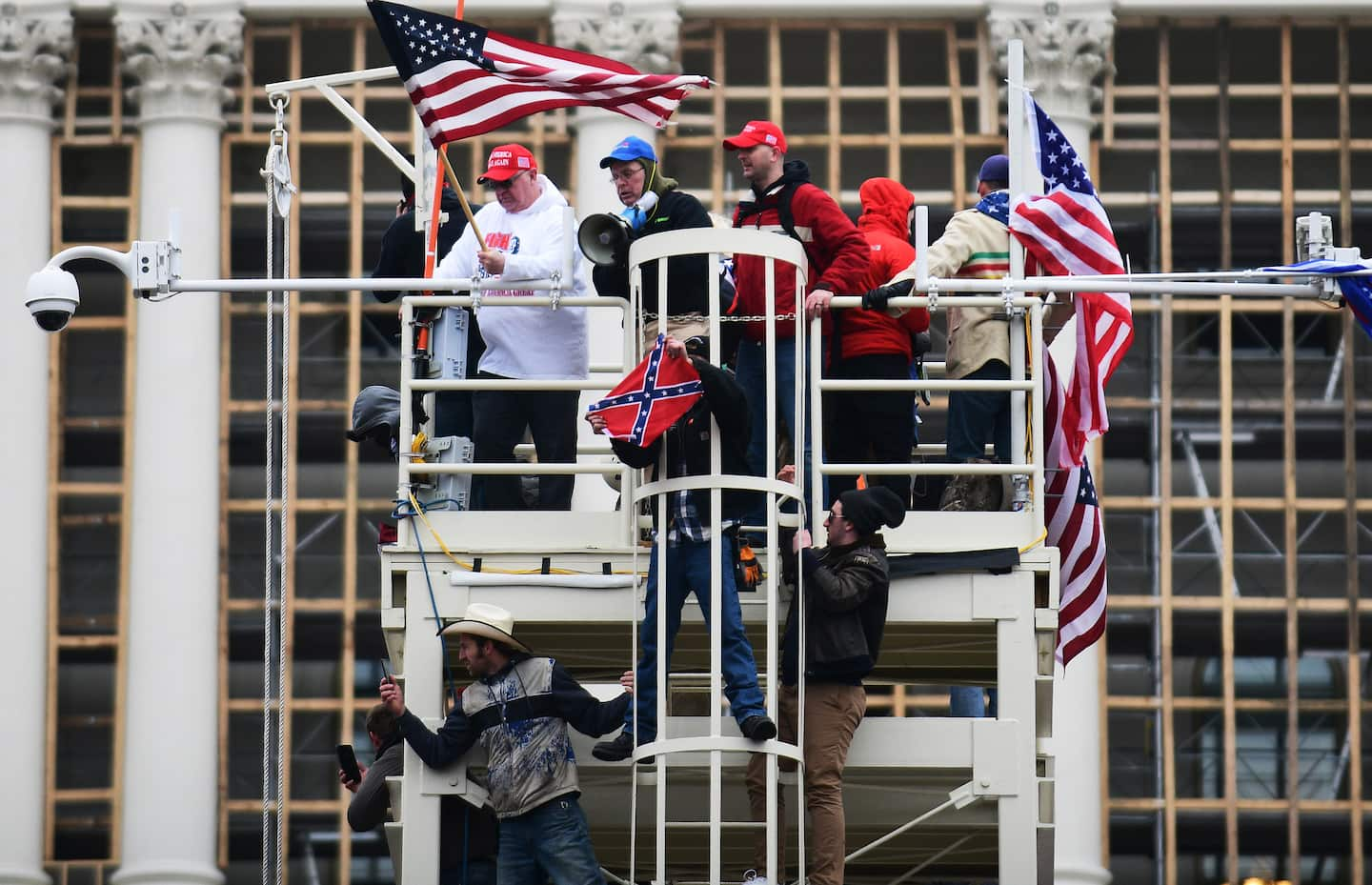This is white supremacist domestic terrorism. We’ve been here before.

“We have plenty of precedents for what happened on January 6, not at the federal level, but in white-on-black violence in the South during Reconstruction,” Chernow told me in a primer he emailed to me before appearing on my Sunday show on MSNBC. “During this dreadful period, we had numerous cases of rampaging whites invading legislatures.” Chernow is the Pulitzer Prize-winning author of a biography of President Ulysses S. Grant.
“In July 1866, a White mob, backed by the police, stormed the Mechanics’ Institute in New Orleans, where a convention was meeting to shape a new constitution to safeguard Black rights. 34 Blacks and 3 White Republicans were butchered,” recounted Chernow. “In April 1873, in Colfax, Louisiana, as many as 200 Blacks were slaughtered at the county courthouse — the worst carnage perpetrated during Reconstruction.”
The horrific violence was fanned by comments from elected officials, Chernow pointed out. “For days before the bloody assault on the Mechanics’ Institute convention in New Orleans in July 1866, for instance, Mayor John Monroe had issued incendiary statements that whipped up the white supremacist community into a frenzy,” he said.
And then there was the emergence of the Ku Klux Klan in response to the 1870 ratification of the 15th Amendment, which gave Black men the right to vote. “Southern whites realized that, if Black men dared to vote, they would come to power in the South. The Ku Klux Klan emerged as the terrifying response to this situation,” Chernow noted. “The Klan became the Invisible Empire in the South, slaughtering thousands of Blacks without prosecution, and it focused on Blacks who dared to register or vote or engage in political activity.”
Americans have been shocked to learn that among the domestic terrorists involved in the Jan. 6 attempted coup were members of law enforcement and the military. But that’s not new, either. Chernow pointed out, “The KKK and other white supremacist groups that started during Reconstruction had many policemen and Confederate veterans in their ranks, making them that much more dangerous.”
Blight, whose biography “Frederick Douglass: Prophet of Freedom” won the Pulitzer Prize in 2019, struck a note of optimism on the Sunday show. “This practice of white supremacy, white nationalism has always been resisted, has always been fought,” said Blight. “From the abolitionists through the great pluralists of the late 19th century in which Douglass was such a great one … to the colossal pluralism we learned from the modern Civil Rights movement, it has always had … resistance of all kinds.”
Part of that pushback was Grant’s decimation of the KKK. “So strongly did he feel about Klan violence that in April 1871, he marched up to Capitol Hill and lobbied for passage of the Ku Klux Klan Act, which gave him extraordinary powers to crush the Klan,” explained Chernow. “By a nice coincidence, the Justice Department had been formed just a year earlier and it forged its identity in this campaign.” This is why attorney general-designate Merrick Garland cited Chernow’s scholarship in accepting President-elect Joe Biden’s nomination to run the Justice Department.
Another American tradition is calling for unity without fully addressing the injustice that elicited said calls to begin with. Hannah-Jones, the New York Times reporter whose “1619 Project” won a Pulitzer Prize in 2020, warns against this “instinct to move on” in the wake of the Jan. 6 insurrection. It “almost always comes at the expense of Black equality,” she said. “If we learn from what happened in Reconstruction, there has to be serious consequences and there has to be a serious effort to really show that we will not allow this type of violence to rule our politics in this country.”
Then she asked two really important questions. “What does reuniting with people who are willing to overthrow our democracy in the service of holding on to white power [look like]? … How does one then unify with them without actually being dismissive of the Black Americans whose votes are what caused all of this?”
These questions have been asked throughout our history. That Hannah-Jones is asking them in 2021 shows that national reconciliation is the one path the United States has yet to successfully pursue.
More from Jonathan Capehart:






